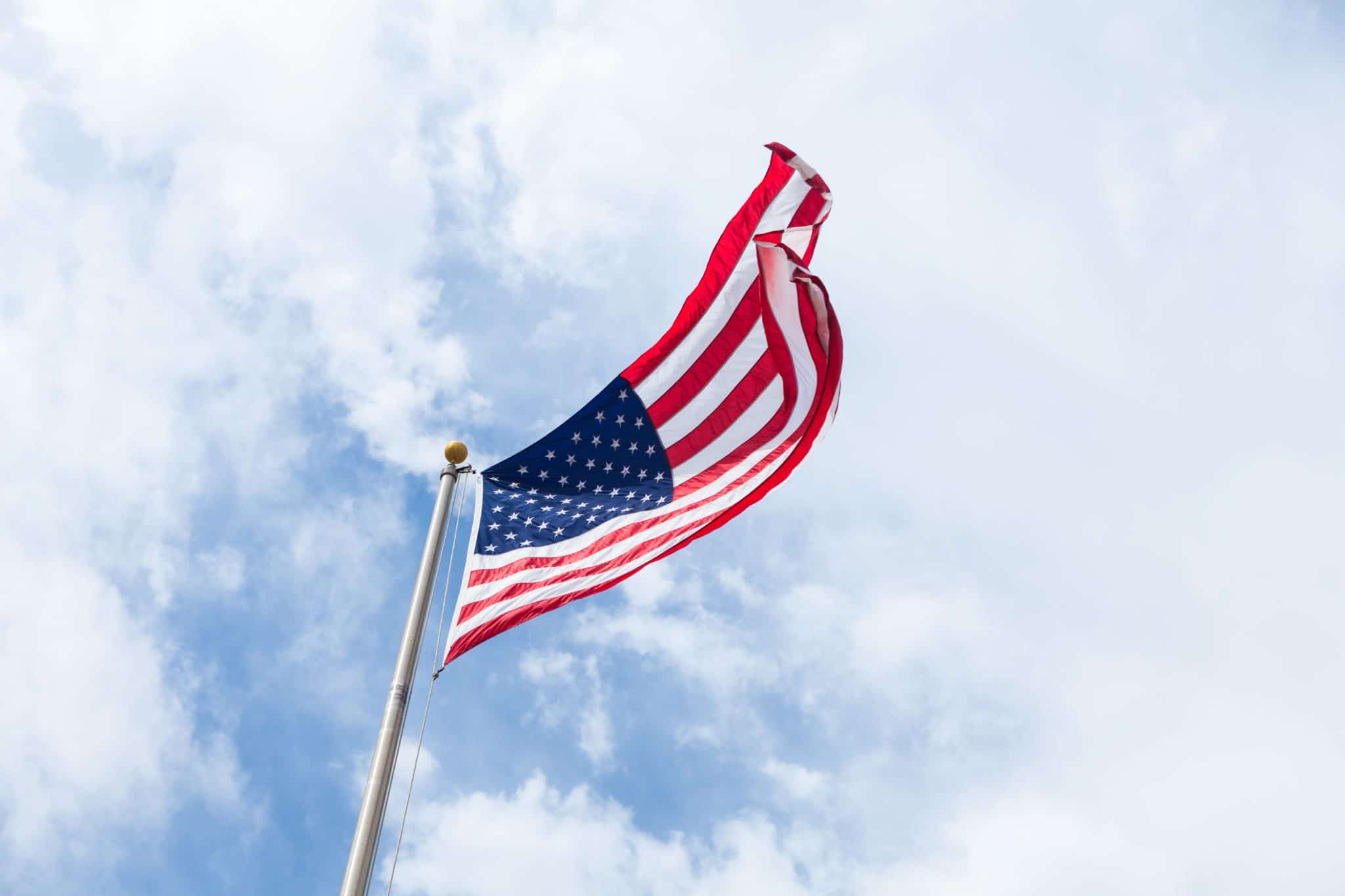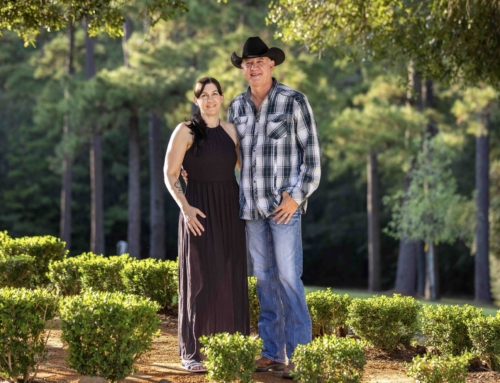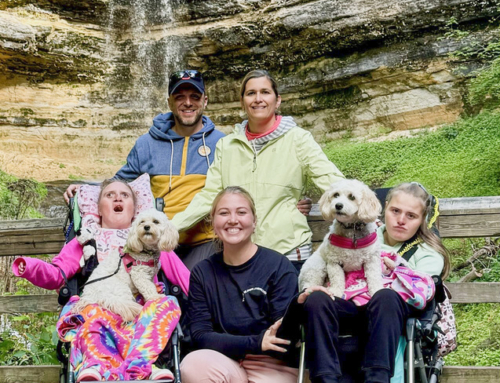September 11 (Excerpt from The God I Love)

“Joni, wake up!” Judy shook my shoulder hard at seven in the morning.
“Wh-what?” Through my grogginess, I immediately knew something awful had happened.
Judy clicked on the television and sat on the edge of my bed, huffing. I squinted, recognizing the World Trade towers through huge columns of billowing smoke.
“Two planes flew into the buildings,” she said tensely.
The words sounded like a nightmare.
“Was it an accident?”
Judy’s look told me it wasn’t. “They said on the radio it’s hijackings. Another plane has slammed into the Pentagon. More could still be out there.”
The TV reporters huddled against buildings, nervously fumbling for words, their microphones shaking, their stories staccatoed with terrifying facts: “The upper stories are an inferno…” “Flames are belching from office windows…”
None of their words seemed real. The live images were just as unreal: office workers huddling on ledges, camera angles confirming reports of people falling from windows, thousands fleeing down the streets, and — oh, no, no — the colossal towers rumbling, roaring, and now collapsing in a tsunami of smoke, like dying giants, falling and dragging hundreds, maybe thousands down with them.
My mind couldn’t take in what my eyes were seeing.
I got up as quickly as I could, and called my sisters back in Baltimore. I knew they were far from Washington, D.C. and the Pentagon, but the terror of what was happening made me, made us all, feel suddenly fragile and insecure, and desperate for the sound of family voices. We consoled each other on the phone – “Are you okay?” and “Yes, yes, I’m okay. Are you?” – and I felt we were back in the basement of our old house on Poplar Drive, huddling with each other while the distant, eerie sound of the siren from the Woodlawn Fire Department warned us to take cover because the Russians were about to drop the bomb at any minute. We’d held our breath, waiting for the God-awful siren to stop, worried that if we whispered too loud, the enemy would hear us and burst through the back door.
That same fragility and fear gripped me now. But this was no civil-defense drill from the fifties. This was a new era, a millennium, with new enemies to fear. And although the devastating scenes on television bore a surreal resemblance to a Die Hard film, I had to keep reminding myself, this isn’t a movie.
I didn’t stop to think that millions like me were feeling, thinking and doing the same things: telephoning family members, standing by television sets weeping and praying, waiting hour after hour, transfixed by the heart-twisting images, hoping against hope that those hundreds of firemen and policemen didn’t really go into those buildings, that all those stock traders and brokers, cleaners and janitors surely made it out okay, that certainly those planes were empty.
There was a knock on the door, and I jumped. Then I remembered my appointment with our contractor to go over paint samples – we were putting an addition on our house. It all seemed so trivial, so I begged off. He seemed relieved, too.
Yet I couldn’t just sit at home in front of the TV all day. Ken was at school, teaching, and I wanted to be at Joni and Friends with my friends and coworkers. Besides, e-mails were already flooding into the office from around the world, expressing shock along with concern, as if the civilized world feared the United States was about to be blown away. Every message included the assurance, “We are praying for America and her people.”
It was hard to concentrate on everyday work. Doing anything other than talking about the terrorists’ attacks — it was being reported as terrorism — seemed innocuous. And so, as news flashes came in, we listed things to pray about on the whiteboard in the boardroom: survivors… families… firemen and emergency workers… and the hundreds who obviously would be victims of burns and injuries. By four o’clock, we were numb and spent. We closed the office early.
Judy drove me home — I was too shaken to drive myself — and as we sped down the freeway, we listened to the radio. The whole nation was asking, who were these awful men who turned planes into missiles, killing thousands? Who was this enemy? Why were we the focus of so much hatred? Which other major cities would be next? Los Angeles? A dark, ominous wave began forming on the horizon of my mind. I had never experienced such thoughts before. Thoughts of war. A war that wasn’t being waged in the Persian Gulf or Vietnam, but one that had come home.
It felt strange to stop at the supermarket for something as ordinary as dinner, but as we pulled into the parking space, my attention was averted by a small group of six or seven spikey-haired teenagers on skateboards, whooping and hollering and hopping the speed bump in front of the supermarket, all the while snubbing the sign posted directly above them: No Skateboarding Allowed.
“Look at those kids,” I gasped to Judy, “I can’t believe what they’re doing on a day like this. Someone should stop them.”
A pregnant paused passed. “Why don’t you?” Judy asked.
Why not? I thought. I wheeled over to the group and mustered up a firm tone of voice. “Young men, may I talk with you a moment?”
The clatter of skateboards ceased. My sudden appearance — perhaps my wheelchair — stunned them into silence. I could tell they didn’t know whether to run or start badmouthing me. So I ventured further, “Please let me have a few words with you.”
“I’m afraid of you, lady,” yelled one kid as he hopped on his board and began circling at a safe distance.
“Afraid of two older women, one in a wheelchair?” Judy called out, joining me.
His friends snickered. That was good – for a moment, I had their attention.
“Young men,” I said again, hoping they would rise to this level, “this morning thousands lost their lives because awful people broke laws and had contempt for authority.” At that point, my face became red and my eyes moist. “Seeing that so many died because of this, how can you with a clear conscience so flagrantly break this law?” I gestured to the sign with my eyes.
The boys were listening – some of them looking intently at me, almost relieved, while others stared at the ground. “Your behavior dishonors the people who died and those that tried to rescue them.”
A lull settled over us. “Here, gather around me,” I continued, “let’s pray for the families. Come close now. Just bow your heads with me.”
Each one shuffled forward. In the next moments, these spikey-haired kids with tattoos and earrings held their skateboards and listened — or prayed, perhaps — as I asked God to comfort the families, and to be with the rescuers and all those who had been injured. I concluded by asking him to be large in the hearts of these young men, and to help them be good citizens, good role models to their friends.
“Amen,” I said. I thanked them as they nodded then and wandered off in different directions, their common bond broken for the moment.
When Judy and I finished shopping and exited the market, we half-anticipated to hear the sound of skateboards. But as we reached the parking lot, there was no one in sight. Judy started the van, and I wondered aloud, “What’ll we do if they come back?”
“You’ll talk to them again,” she said, smiling at me in the rearview mirror.
That strange encounter underscored that life on September 11th changed, instantly and dramatically.





